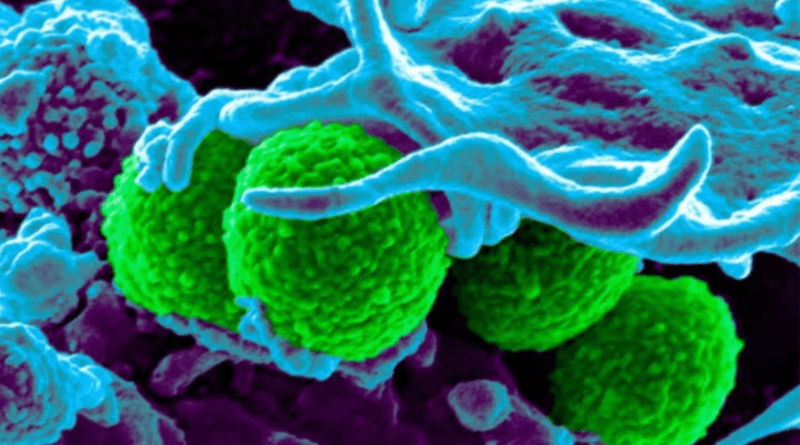Researchers found: superbugs can now be eradicated by an antibiotic .
A recently discovered class of antibiotics may be able to stem the spread of a virus that kills up to 60% of infected individuals.
Over a million people worldwide are killed by so-called “superbugs” every year, and the World Health Organization (WHO) has warned that we are approaching a “post-antibiotic” future.
As a result of their spread, frequent infections and routine procedures run the risk of becoming fatal.
Nevertheless, it has been demonstrated that the Swiss pharmaceutical company Roche’s Zosurabalpin eliminates CRAB, which medical professionals have warned is rampant in UK hospitals.
A pharmaceutical known as zosurabalpin was shown to be successful in combating a drug-resistant strain of Acinetobacter baumannii, which resembles short rods (graphic), by rupturing a protective barrier that hinders the action of numerous other drugs.
According to laboratory studies, the medication eliminated in mice extremely drug-resistant strains of Carbapenem-resistant Acinetobacter baumannii (CRAB).
The WHO has categorized CRAB as a “priority 1 critical” infection, meaning that new therapies are urgently needed.
The mortality rate for invasive CRAB infections is estimated to be between 40 and 60 percent.
Zosurabalpin kills bacteria by interfering with its ability to maintain its lipopolysaccharide-based protective membrane.
If human results are confirmed, zosurabalpin may be the first novel antibiotic created since 1968 to treat infections similar to CRABs.
Acinetobacter baumannii is a member of the Gram-negative bacterial class, which makes them challenging to eradicate because most antibiotics are unable to pass through their outer membrane.
Additionally, by understanding the mechanism of action of Zosurabalpin, scientists expect to design new drugs against superbugs.
Superbugs are a serious menace that should not be taken lightly.
The “silent pandemic” of antimicrobial resistance is predicted to kill more people over the next 30 years than cancer does now.”
“CRAB is a major source of infection in hospitals, especially among patients using ventilators,”
Unfortunately, because this bacterium is so skilled at preventing antibiotics from penetrating its outer cell layer, developing new treatments for it has proven to be quite difficult.
Consequently, this work is really intriguing and gives hope that the methods being used to discover new antibiotics may be successful.
According to one, the medication prevented animals with CRAB-related sepsis from dying and decreased the amount of bacteria in mice with CRAB-induced pneumonia.
Another dissected Zosurabalpin’s exact mechanism of action against CRAB.
Although encouraging, the outcomes have not yet been confirmed in human trials, where a lot of drugs fail during the development phase.
According to a groundbreaking study released in January 2022, 1.2 million individuals died in 2019 as a direct result of antibiotic-resistant illnesses.
According to estimates, the bug kills 700 individuals in the US annually.
It is unknown how many people in the UK are killed by CRAB, however researchers have previously warned that the disease is ‘endemic’ in the country’s hospitals.
When antibiotics are administered incorrectly or in excess, bacteria may develop resistance to them.
ANTIBIOTIC RESISTANCE: WHAT IS IT?
For decades, doctors and hospital workers have given out unnecessary antibiotics, which has encouraged previously benign bacteria to develop into superbugs.
The World Health Organization (WHO) has already issued warnings that a “post-antibiotic” future is imminent if nothing is done.
Common illnesses like chlamydia, it was said, will turn deadly if the escalating epidemic is not addressed right away.
When antibiotics are administered incorrectly or in excess, bacteria may develop resistance to them.
In 2016, Dame Sally Davies, the former chief medical officer, claimed that the threat posed by antibiotic resistance was on par with that of terrorism.
By 2050, superbugs are predicted to kill 10 million people annually when patients become infected with once-harmless bugs.
Globally, drug-resistant illnesses such as tuberculosis (TB), HIV, and malaria already claim the lives of some 700,000 people each year.
Many have expressed fear that if antibiotics become ineffective in the next few years, medicine will return to the “dark ages.”




